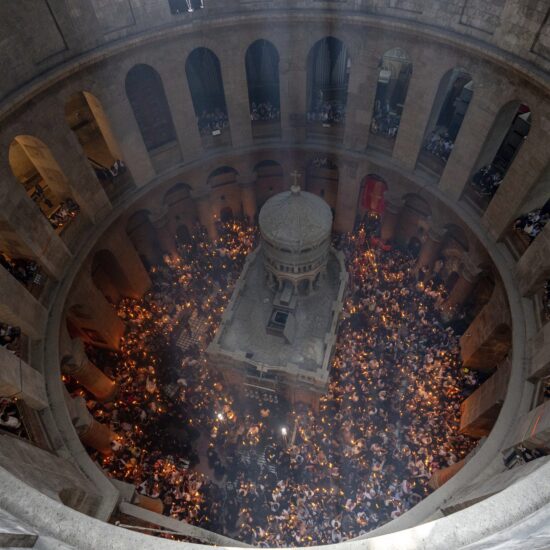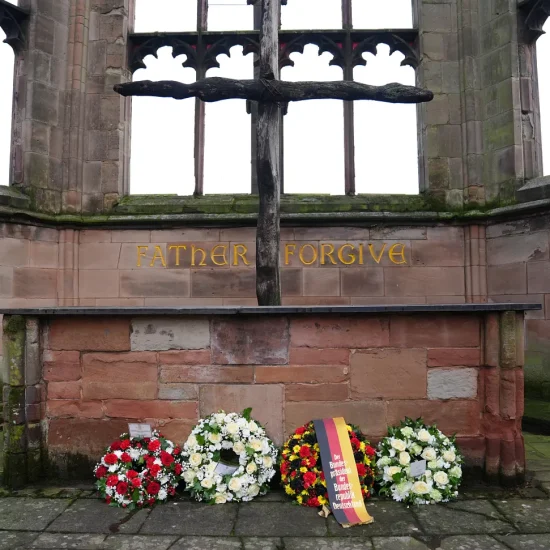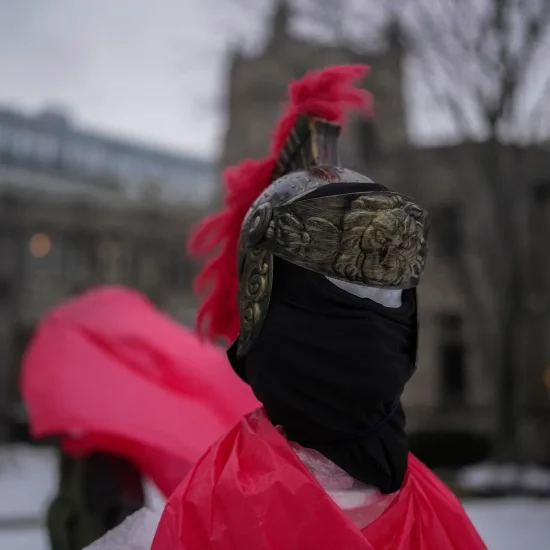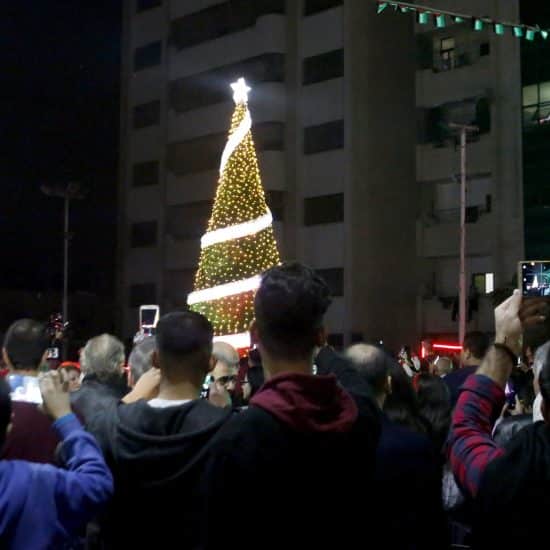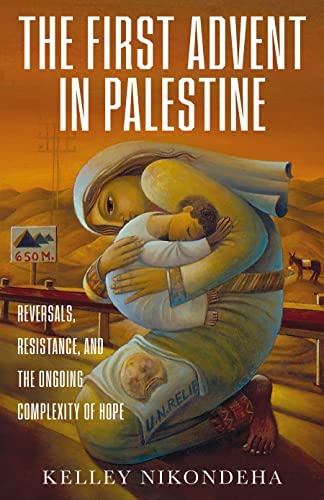

THE FIRST ADVENT IN PALESTINE: Reversals, Resistance, and the Ongoing Complexity of Hope. By Kelley Nikondeha. Minneapolis, MN: Broadleaf Books, 2022. 212 pages.
The liturgical season of Advent is often ignored as Christians rush toward Christmas. Yet, Advent is not just the prelude to Christmas, it is the whole thing. That is, Christmas and even Epiphany are expressions of the Advent season. They are all related in the sense that taken together we hear words about both preparation and fulfillment. What we call Advent is usually focused on preparation, but it’s more than that. Speaking of the traditional season of Advent, when we neglect the preparatory materials, we end up missing the meaning of the incarnation. Fortunately, resources appear regularly that, if we pay attention to them, can help broaden our experience of God’s presence among us as we look forward to another advent.
The First Advent in Palestine is the latest book by Kelley Nikondeha. She is a gifted storyteller whose previous books — Adopted: The Sacrament of Belonging in a Fractured World and Defiant: What the Women of Exodus Teach Us about Freedom — are gifts to the church. Nikondeha has a unique ability to delve into biblical stories and connect them to real lives in the contemporary world, especially those who live on the margins. This book is no different.

Robert D. Cornwall
Before I proceed, I should note that this review is based on the publisher’s Advance Reader’s Copy, which means the page numbers and perhaps quotes might not be completely accurate. Nevertheless, I trust that they are close enough.
This book, which might appear at first glance, based on the title, to be another Advent devotional, is instead an expression of Nikondeha’s attempt to put the biblical Advent stories in a Palestinian context. Even as she portrayed the women of the Exodus as defiant ones whom God worked with and through to liberate the people of Israel, the central figures in this story are also agents of defiance who resist occupation. In other words, this is a liberationist reading of the Advent/Christmas/Epiphany stories.
In this telling of the first Advent story, which was set in the context of the Roman occupation, she lifts up another occupation, the one experienced by the Palestinian people. Since the central geographical point in the first Advent story is Bethlehem, she introduces us to people living today in modern Bethlehem who experience the travails of occupation. Even as she highlights the biblical story, she introduces us to the people of the Palestinian territories, and they deal with the daily concerns of life under Israeli control. While this is a story of resistance to occupation, it is also a story of hope. While it is a word of hope, that hope has complexity.
Since this is a story of people living under occupation, Nikondeha begins The First Advent in Palestine with the story of the Maccabees. Titled “Silence and Suffering,” this opening chapter takes us back to a moment in Jewish history when the people resisted an oppressive occupation. In doing this she acknowledges the experience of suffering endured by Jews both in the ancient world and in the modern one. At the same time, she wants us to hear the stories of the Palestinians who have too often been forgotten or at least ignored as we wrestle with the realities of anti-Judaism/anti-Semitism in the modern world. This focus will be challenging to many, but it is an important challenge. Thus, she writes that “a vital part of the first advent is wrestling with those harmed by imperial oppressors — from the Babylonians to the Seleucids to the Romans.” (p. 22). Thus, the first chapter introduces us to the “darkness before God’s arrival.”
After this introductory chapter that takes us to earlier times as described in 1 and 2 Maccabees, she turns to the infancy narratives. The first section of the book focuses on the narrative in Luke. The second part takes up the story as presented in Matthew. Thus, we see both visions of the story. It’s important that we not conflate the two, as they have different messages. Nikondeha is to be commended for keeping these separate.
From there we move to “God’s Peace Campaign.” In this chapter, we encounter Zechariah, who is an ordinary priest who receives word from an angel telling him that he will be the father of a son. Not only will he have a long hoped-for child, but this child will announce the coming peace of God. While Zechariah hears the message, he is silenced. Nevertheless, we learn here about what it means to be a priest in the first century when Herod sought to control the priesthood. While we encounter Zechariah, we also encounter Palestinians living in the region. We learn about the precarious nature of life under occupation. From Zechariah, who receives a message about a son to be born to him and his wife, we move to Mary, a girl from Galilee, who also hears a message from Gabriel.
In Mary, according to Nikondeha, God finds another collaborator in this peace campaign. Again, God reaches out to an ordinary person living on the margins in a marginal region (Galilee) to work with. She tells of her own experiences of Galilee and other similar West Bank towns and people. Then we get to experience in chapter 4 the meeting of the “Mothers of Advent.” That is the encounter of Mary with Elizabeth, a visitation that led to her song (The Magnificat), a song of resistance. These are the Advent stories, which she connects with life in the region, where peace is difficult to achieve.
Now we move from the preparatory stories in Luke to the birth story itself. We return to Bethlehem to experience “A Hospitable Birth in a Hard Economy” (ch. 5). As she tells the story of the census and the travels to Bethlehem, she pushes back against the vision of inhospitality (no room in the inn). She shares how the people of Bethlehem today are gracious, hospitable, and welcoming. This attitude she believes would have been true back in the first century as well today. In this chapter, we get to see the baby Jesus and experience the town of his biblical birth. As we do we are introduced to things like tea and falafel and pomegranate juice that are available to the visitor to Manger Square.
Of course, in Luke’s story of Jesus’s birth, there are shepherds and angels. We encounter them in chapter 6 “Visible and Invisible.” She shares the realities of the life of shepherds in the ancient world but also visits a 100-acre farm in the West Bank where olive trees and other trees are taken care of. There is in this modern context a precarious situation, as the Israeli military has plowed under Palestinian farms to make way for Jewish settlements. She writes that “Advent is not immediate. It’s a slow peace” (p. 104).
In chapter 7, we begin exploring the story as told by Matthew. Whereas Joseph plays a minor role in Luke, he plays a much larger role in Matthew. We begin with a chapter titled “Generations.” In this chapter, Nikondeha introduces us not only to Joseph but Herod as well. This sets up the Herodian response to Jesus’s birth later in the story. The focus here, besides Herod, is Jesus’s family tree. We learn here about the betrothal, Joseph’s concerns, and his decision to embrace Mary despite her compromised situation. Nikondeha suggests that “Advent reaches across the generations, always pushing us to embody God’s peace in today’s troubled times. We recognize the signature of advent not in Herod but in the true king, Jesus” (p. 128). In chapter 8 we again encounter Herod, but also the Magi and the star that leads them to the Bethlehem home of Joseph, Mary, and their child. Titled “Unexpected Hope,” we again experience life in modern Bethlehem, including the realities of life under occupation. She tells of the Walled Off Hotel and the Banksy flower piece that mark the separation wall dividing Bethlehem from Jerusalem.
While that is the context for hearing the story, we also learn about the Magi who come from Persia in search of the true king, and how they resisted the invitation to collaborate with the despot named Herod. Of course, the story doesn’t end with the Magi’s return. There is, as described in chapter 9, the flight of the Holy Family and the slaughter of the innocents. Titled “Even After God Arrived,” she notes that tense political dynamics and economic hardship continued. There was still reason to lament. Injustice continued. She points out that Matthew likely wrote this after the Roman destruction of Jerusalem in 70 CE. Though this reality continues, Advent stands as a subversion of imperial power.
Nikondeha concludes the book with the story of the return of the Holy Family from Egypt to their homeland. Of course, home is not Bethlehem but Nazareth. She writes that the Advent story reminds us that empires keep coming. That might lead to resignation and the sense that the only peace available to us is the one offered by Caesar. The situation for many remains grim. Occupation continues. People continue to be refugees. Nikondeha intersperses their story with that of the Holy Family. Hope then is to be found in this: “Advent isn’t the acceptance of status-quo peace, but an incarnation of God’s peace that we live in the world” (p. 189). Such is the invitation given to us.
The First Advent in Palestine is true to what I’ve come to expect of Kelley Nikondeha. We see here both her love of the biblical story along with her commitment to justice for others. She has an ability to weave the two stories, ancient and modern, in ways few can, at least that I know of. If you’ve read her previous books, you will know this will be an excellent read. If you’ve not read the earlier books, I can say that this is an excellent way to start a conversation with her. Of course, you’ll want to go back and read the other books. May your experience of Advent be life-transforming as you read this.
This review originally appeared on BobCornwall.com.
Robert D. Cornwall is an ordained minister in the Christian Church (Disciples of Christ). Now retired from his ministry at Central Woodward Christian Church (Disciples of Christ) of Troy, Michigan, he serves as Minister-at-Large in Troy. He holds a Ph.D. in Historical Theology from Fuller Theological Seminary and is the author of numerous books including his latest books: Called to Bless: Finding Hope by Reclaiming Our Spiritual Roots (Cascade Books, 2021) and Unfettered Spirit: Spiritual Gifts for the New Great Awakening, 2nd Edition, (Energion Publications, 2021). His blog Ponderings on a Faith Journey can be found at www.bobcornwall.com.


